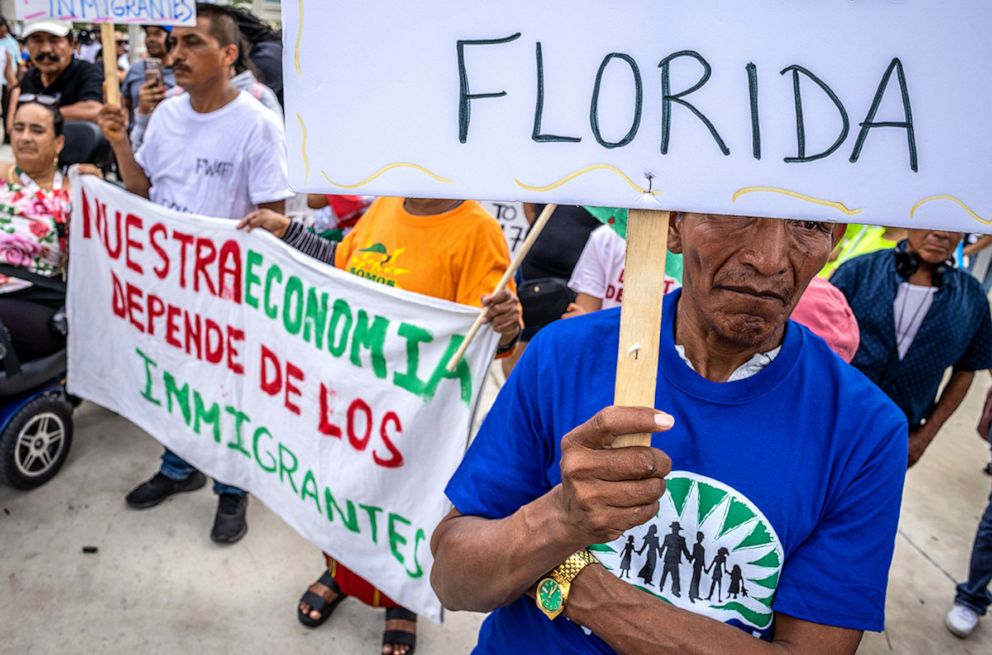The Impact of Immigration Law on Undocumented Workers in Florida: A Closer Look at the Uncertainty Ahead
Introduction:
Immigration has always been a hot-button issue in the United States, and Florida, with its large immigrant population, is no exception. Undocumented workers play a significant role in Florida’s economy, particularly in industries such as agriculture, construction, and hospitality. However, recent changes in immigration law have created a cloud of uncertainty for these workers and the businesses that rely on their labor. This article aims to explore the impact of immigration law on undocumented workers in Florida and shed light on the uncertainty that lies ahead.
The Role of Undocumented Workers in Florida’s Economy:
Undocumented workers make up a substantial portion of Florida’s labor force. According to the Pew Research Center, there were an estimated 775,000 undocumented immigrants living in Florida in 2017. These individuals contribute to various sectors of the state’s economy, often performing jobs that many American citizens are unwilling to take on. In agriculture, for example, undocumented workers play a crucial role in planting, harvesting, and processing crops. Without their labor, Florida’s agricultural industry would suffer significant setbacks.
Uncertainty Surrounding Immigration Law:
The uncertainty surrounding immigration law has been a constant source of concern for undocumented workers in Florida. Changes in federal policies and enforcement priorities have left many workers fearing deportation and separation from their families. The Trump administration’s aggressive stance on immigration, including increased workplace raids and stricter enforcement measures, has only intensified this fear.
One significant change that has added to the uncertainty is the rescission of the Deferred Action for Childhood Arrivals (DACA) program. DACA provided temporary protection from deportation and work permits to undocumented individuals who arrived in the United States as children. The termination of this program has left thousands of young undocumented workers in Florida unsure about their future and their ability to continue contributing to the state’s economy.
Impact on Businesses:
The impact of immigration law on undocumented workers extends beyond the individuals themselves. Many businesses in Florida heavily rely on this labor force, and any disruption can have severe consequences. In agriculture, for instance, farmers face labor shortages as undocumented workers become more hesitant to work in the fields due to the fear of deportation. This, in turn, leads to increased production costs and potential losses for farmers.
Similarly, the construction industry heavily relies on undocumented workers who often take on physically demanding jobs at lower wages. Without this labor force, construction projects may face delays and increased costs, ultimately affecting the overall economy.
Potential Solutions:
Addressing the uncertainty surrounding immigration law and its impact on undocumented workers in Florida requires comprehensive immigration reform. A pathway to legal status for undocumented workers who have been contributing to the economy and have no criminal record could provide stability and peace of mind for both workers and businesses.
Additionally, creating a guest worker program that allows individuals to legally work in industries where there is a shortage of American workers could help fill labor gaps while ensuring fair wages and worker protections.
Conclusion:
The impact of immigration law on undocumented workers in Florida is significant and far-reaching. The uncertainty surrounding their legal status creates fear and anxiety, not only for the workers themselves but also for the businesses that rely on their labor. Finding a solution that balances the need for immigration enforcement with the economic realities of Florida’s industries is crucial. Comprehensive immigration reform that provides a pathway to legal status and addresses labor shortages could help create a more stable and prosperous future for both undocumented workers and the state as a whole.



